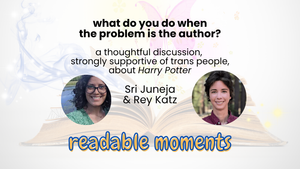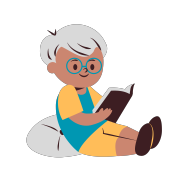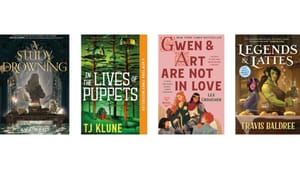Remember loving Harry Potter? For me at least, the books played such a big role as I came of age. That's why it is so devastating that the author, JK Rowling, has spent years speaking against and funding legal battles against trans people, especially trans women.
I'm thrilled and honored to collaborate with Sri Juneja, who writes the excellent Readable Moments newsletter about books for children and young adults, to dig into the nuances of loving a book while the author is working to hurt you. It's a complicated topic and I really appreciate how Sri considers various sides respectfully while strongly supporting trans people.
If you like children’s books, books for young adults, and/or you have young people in your life, I highly recommend subscribing to Readable Moments to find your next great read!
Without further ado, I hope you enjoy Sri’s expert analysis and interview:
Sri Juneja: When did you first read the Harry Potter books? For me, it was 1998, and my local children’s librarian would often ask me to review books to help them determine how many copies to order. It was this particular request that landed the first Harry Potter book, Harry Potter and the Sorcerer’s Stone, in my lap. I can still remember the insatiable delight and incredible pull of the story after finishing just the first chapter. It didn’t hurt that it was a children’s book with such diverse representation. It meant so much to me to see Indian characters represented in such a popular series. So it’s hardly a surprise that I became a big fan of the series. I’d eagerly await the launch of every book, attending the book launch parties at Barnes & Noble, and getting tickets to the first showing of the Harry Potter movies.
Therefore, not only am I livid at J.K. Rowling for demolishing the legacy of the Harry Potter series, but I’m also deeply offended by her rabid transphobic rhetoric. If you haven’t heard (and I’m not linking it as I don’t want to increase views for her hateful speech), J.K. Rowling has been making increasingly transphobic remarks on her social media channels. She has even created and funded a legal defense fund to fight against trans rights. Once known as a beloved children’s book author, she is now famous for her fanatic campaign to denounce trans rights. Not only has she deeply offended so many but she’s also tarnished the memory of a beloved series.
So what does someone like me do? Someone who grew up with and loved the Harry Potter series but is now conflicted on whether we can share this series with the kids in our lives. Do we even introduce our kids to Harry Potter and, if so, how?
To help me answer this question, I reached out to someone who I’ve followed for a long time: Rey Katz, author of the brilliant Amplify Respect newsletter, which provides a safe space to ask questions and learn more about the LGBTQ+ community. I’ve asked Rey to share their thoughts on J.K. Rowling’s vicious views and how it impacts them as a trans person. Based on Rey’s wisdom, I also provide my take on how I plan on approaching this with my kid.
Before that, let’s do a quick summary of what Harry Potter is all about…
Harry Potter series
Written by J.K. Rowling
Recommended Ages: 8+ years old
Harry Potter is a young boy with a mop of unruly black hair, round spectacles, and a lightning-shaped scar on his forehead. After the death of his parents as a baby, he grows up in his aunt and uncle’s household with a bully of a cousin. He faces abuse and neglect at the hands of his adoptive family so when a letter arrives informing Harry he’s magical and has a place at a magical boarding school, he’s elated.
Upon his arrival into the magical world, Harry quickly discovers he’s famous, referred to as The Boy Who Lived. He quickly learns that his parents did not die in a car accident; they perished at the hands of an evil, cruel wizard named Voldemort (He Who Shall Not Be Named). And when Voldemort turned to kill Harry, his spell rebounded and he ended up dying.
With these revelations, Harry begins his magical education at Hogwarts School of Witchcraft and Wizardry befriending Ron Weasley and Hermione Granger. But things are not as they seem and Harry and his friends soon realize that evil is on the rise and they alone can protect the wizarding world from its terrors.
There are seven books in the series and each book follows a year at school. The early books certainly have their fair share of villains but the fourth book, Harry Potter and the Goblet of Fire, really ups the ante and from there on each subsequent book is quite dark.
What’s your history with Harry Potter? Have you read them? What did you think about the books?
I grew up as a child who everyone thought was a girl but had a lot of transmasculine thoughts and feelings throughout childhood and into adulthood. I finally came out as trans and nonbinary in my late twenties, and I'm 34 now.
When the Harry Potter books first came out, I was the same age—11 years old—as the main character, Harry. I was a voracious reader, devouring all the YA novels our rural library stocked. Because the HP books were so popular, my parents bought them for me, and every year I looked forward to the next part of the story.
I thought a lot about the characters, even daydreaming about being one of their classmates at Hogwarts. In my daydreams, I used to pretend I was adventuring with the boys, and I never went into the girls-only common room or anything. This didn't strike me as unusual; I think because so many of the books I read had male protagonists. I remember being surprised when I found out Rowling's name was Joanne and she was a woman. Someone explained to me that the reason she went by her initials was because boys wouldn't want to read a book written by a woman. So much casual sexism in the ‘90s!
It's hard to overstate how popular Harry Potter was for my generation. Even kids who didn't usually read, read Harry Potter. It was something to connect with your friends over.
For the past 7 years, J.K. Rowling (JKR) has campaigned against trans rights and the trans community. How does that impact the way you perceive the books?
I think it's important to emphasize, like you have, that JKR didn't just make one or two transphobic comments or something. She has been systematically using her online platform and wealth to attempt to convince everyone that trans people, particularly trans women, shouldn't exist. I'm incredibly disappointed and frustrated that someone who could have remained a beloved children's author would let bigotry engulf her legacy.
Looking back on the HP books now, I'm able to see a lot more discrimination, stereotypes, and disrespect written into the text that I was not aware of in my teens. For example, the goblin bankers are an antisemitic stereotype of Jews. The “evil” women characters such as Rita Skeeter are described with male-coded characteristics like “mannish” hands (this is bad because it implies they are trans women in a really negative way). One of the only Black characters is named Kingsley Shacklebolt (shackle-bolt? WTF) and one of the only Asian characters is named Cho Chang, a stereotype of a name that doesn't make any sense culturally.
I definitely perceive both the books and the author’s public comments as writing I am not interested in supporting, to say the least.
There are a lot of people who are fond of Harry Potter and also deeply troubled by JKR’s disturbing views. I’ve seen and heard about how conflicted people are on the correct thing to do. It seems like people fall into two camps:
One camp that has completely and fully divested from the Harry Potter franchise (they no longer own or consume anything JKR or Harry Potter-related).
The second camp is one that “separates the art from the artist” and continues to enjoy Harry Potter through existing ownership of the books but doesn’t plan on supporting JKR financially through future purchases (no new HP books, no merchandise, video games, etc).
What do you think about these “camps”?
Good question. I can no longer enjoy Harry Potter because it reminds me too strongly of JKR’s transphobia. As a trans person, that's not something I can forget or put aside. I feel personally offended.
For others who choose to read the books, it's more important to me whether a person respects trans people in general vs. if they choose to consume Harry Potter media, whether it's the books, movies, games, theme parks, etc. It feels slightly off-putting to me, to be honest, but I don't see it as ill-intentioned.
I usually assume people aren't really aware of JKR’s public statements when I see them enjoying Harry Potter. I don't see being a fan of the characters as an endorsement of the author's views. However, keep in mind that if you are paying for Harry Potter books, merchandise, or tickets, the royalties are being used to hurt trans people.
What advice would you offer to someone who loves Harry Potter and wants to share it with their kids but also hates what JKR is saying and doing?
I might consider waiting until kids are old enough to understand the nuance of separating the art from the artist. Help your child understand that an author is just a person, and just because an author says or writes something doesn't make it true or right. Harry Potter is far from the only problematic favorite of our generation. Teaching kids to think critically about our problematic faves is an important skill.
You can also share why you loved the books and what they meant to you. Sharing a favorite book with your kid can be a wonderful experience, so allow yourself to share both the good and the bad. Brace yourself for the possibility your kid may not love the books the way you did. They may recognize and dislike the problematic tropes.
Just in general, if you are an LGBTQ+ ally, it's a great thing to let your kids know in an age-appropriate way. Whether or not your kids are LGBTQ+ themselves, it's important to teach them how to be good allies.
I think whether or not you share Harry Potter with your kids (or they read it anyway) demonstrating your support for trans people to your kids is going to outweigh the effects of one author's transphobia.
Thank you so much, Rey, for sharing your thoughts on such a heavy topic!
My take
In all my Classics Corners, I have been candid with my feedback but have never once said that a book should be passed over. In retrospect, it was easy to say that because many of the classics I’ve covered were released in the past where we can shrug and say, “That’s the way things were back then.” But what do you do when it’s happening now? When it’s not in a far-off distant past, but days, weeks, months ago? When it might hurt your neighbor, friend, or family member? It’s certainly more complicated. Especially as the popularity of the Harry Potter series continues to grow.
I will let my kid drive the decision whether she wants to read the Harry Potter series or not. I will not stop her from reading the books if that’s what she wants to do. And if/when she decides to read the Harry Potter series, I plan on doing the following:
- Not purchasing new books or any merchandise—my kid can borrow from the library. I don’t intend to add to J.K. Rowling’s endless wealth (and by doing that indicate that I support her views)
- I will disclose my views on the author and why I no longer support her work
- And, most importantly, I’ll use this as an opportunity to discuss transphobia and bigotry
- Recommending other series that she might enjoy, which leads me to…
Stay tuned for alternatives to Harry Potter
Part 2 of this Classics Corner write-up is coming up soon where Rey and I share some great alternatives (or additions) to the Harry Potter series!
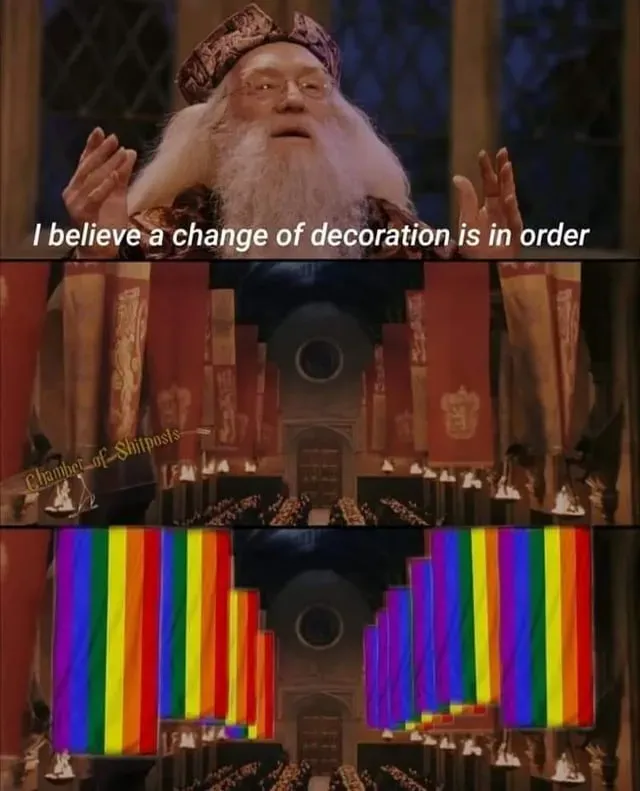
And back to Rey: Thanks for reading! If you've enjoyed this collaboration, please don't forget to subscribe to Sri Juneja’s excellent publication, Readable Moments, especially since Sri will send out book recommendations in Part 2 of this post! Don’t miss it!

If you'd like to read another thoughtful analysis of Harry Potter, I recommend Gabrielle Bellot's essay, How JK Rowling Betrayed the World She Created:
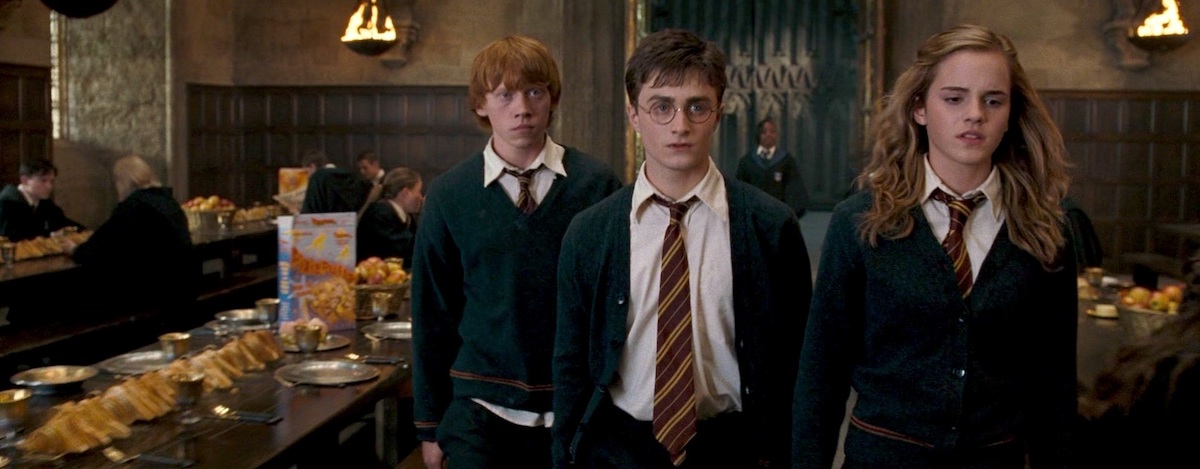
Take care,
Rey

